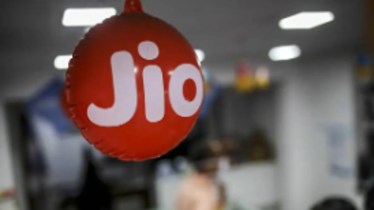Telecom operators and tech firms have started sparring yet again over the need for bringing over-the-top (OTT) apps under similar kind of regulations for telcos.
Starting the debate once again, Reliance Jio on Wednesday urged the Telecom Regulatory Authority of India to include OTT communication service providers in the access services authorisation regime.
In an open house discussion by Trai on framework for service authorisation to be granted under the Telecom Act, Jio argued that there is no strong case for treating OTTs such as Whatsapp differently than telecom operators atleast at the service level. The former should be brought under the authorisation regime as these are in competition with telcos, Jio said.
“Is the voice on OTT and voice on normal telecom different? We are using it interchangeably. At the service level, for the consumers these are exactly the same services,” said Ravi Gandhi, president and chief of public policy at Reliance Jio and Reliance Retail.
“So why these services should not be treated similarly as far as quality of service is concerned or many other parameters related to security, lawful interception, etc,” Gandhi said, adding that at the service level there should be similar compliances for OTTs as well.
Jio’s pitch, however, was refuted by the Broadband India Forum (BIF), which represents tech companies such as Meta, Google, Netflix, Amazon, among others.
BIF backed its argument on the point that the recently enacted Telecom Act does not talk about regulating the authorisation regime, and the same has been clarified by the department of telecommunications.
“OTTs are not telecom services. The argument that these are the same services is a misnomer and it is a misconceived thought,” Debashish Bhattacharya, senior deputy director general at BIF said, adding that certain interested parties continue to bring this up with the hope that through the back door they can get the OTT services covered under the Act.
According to Bhattacharya, telecom service providers have unique exclusive rights that include right to spectrum, right to numbering resources, right to interconnect, and a right of way.
“To set up infrastructure, OTT players have none of these privileges. OTT players cannot provide any kind of services unless and until they are allowed by telecom service providers. Entire network and the control to access the network is in the hands of telecom service providers,” he said, while opposing Jio’s argument on a level playing field.
The whole debate around regulation of OTTs resurfaced after the Cellular Operators Association of India (COAI) in its recent submission to Trai said, “as per our understanding, OTT communication services are covered under the new Telecom Act as an access service”.
COAI, which represents, Jio, Airtel and Vodafone Idea, reiterated that substitutable services should be included under Access Services authorisation under the new framework.
Experts said the debate has resurfaced the vague manner in which telecom services are defined under the telecom Act.
In the Act, telecom services have been defined as: “transmission, emission or reception of any messages, by wire, radio, optical or other electro-magnetic systems, whether or not such messages have been subjected to rearrangement, computation or other processes by any means in the course of their transmission, emission or reception”; and messages has been further defined as “any sign, signal, writing, text, image, sound, video, data stream, intelligence or information sent through telecommunication”.
Post the telecom Act was passed, former Communications minister Ashwini Vaishnaw had clarified that the telecom Act will not regulate the OTT apps.
